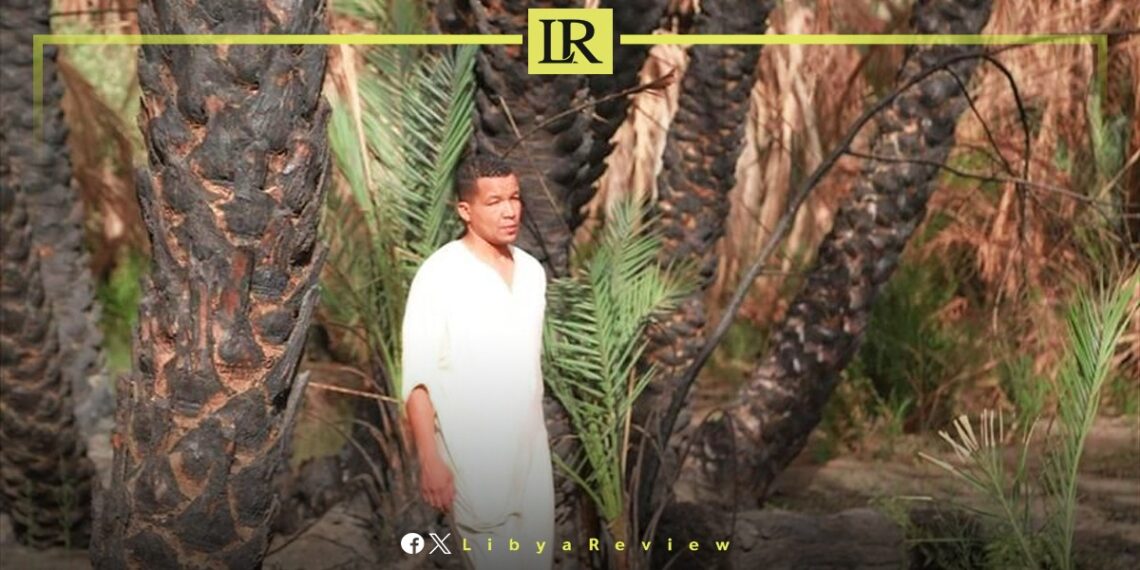A severe heatwave has sparked fires that have ravaged 70% of the palm trees across three farms in the southeastern city of Al Kufrah, Libya. Firefighting teams are currently battling to control the blazes amidst limited available resources.
In press statements, A National Safety Authority official asked for anonymity and reported “On the second day of Eid al-Adha, the high temperatures resulting from the current heatwave caused significant fires in Al Kufrah. Some of these fires have spiraled out of control due to our limited resources.”
The official disclosed that “the fires destroyed three palm tree farms, decimating 70% of the crop.”
The initial fire broke out late Sunday night on Ahmed Abdelkareem’s farm near the General Authority for Social Solidarity Fund headquarters and behind gas station number 66. “We managed to extinguish it by this morning completely,” he added.
“Extinguishing the fire required thousands of liters of water, which were transported by a fire truck from the National Safety Authority’s Al Kufrah branch, after refilling at the city’s airport due to a lack of water at the main water station,” he noted.
The second fire ignited on Monday morning on another palm tree farm owned by a resident. This incident coincided with a malfunction of the water pump on the fire truck, necessitating intervention from local citizens and other agencies.
The third fire, described as the largest of the day, erupted on a farm located far from water sources. As of 17:00 local time (15:00 GMT), firefighting teams were still struggling to extinguish the blaze.
The Libyan official expressed concerns about the fires spreading to surrounding farms, which are also primarily palm tree plantations. He emphasized that “thousands of palm trees have been lost this summer, which will have a profoundly negative impact on both the environment and local agricultural production.”
Libya, with its predominantly desert climate, often faces extreme heat during summer months, posing significant challenges to its agriculture sector. Palm trees are a vital component of Libyan agriculture, providing dates that are both a staple in the local diet and an important export product.
The recent fires in Al Kufrah highlight the vulnerabilities in Libya’s firefighting capabilities, especially in remote areas where access to water and modern equipment is limited. These fires are not only a threat to the livelihoods of farmers but also pose a risk to the local ecosystem. The loss of palm trees can lead to increased soil erosion and reduced biodiversity.


